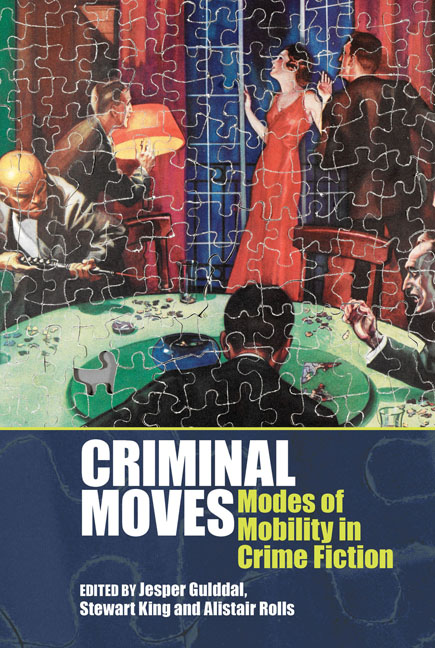4 - Contradicting the Golden Age: Reading Agatha Christie in the Twenty-First Century
Summary
Agatha Christie is synonymous in the popular imaginary with country houses and conservative middle-class complacency (its ruffling and then its restoration). Accordingly, Christie has been positioned as the epitome of the Golden Age whodunnit, the cosy puzzle plot whose crime is resolved and dispelled by the brilliant if eccentric private detective upholding law and order and thus a cultural status quo. This is a familiar critical interpretation from Raymond Chandler (1950) to Franco Moretti (2005). A conservative writer with cardboard cut-out characters, according to P.D. James (Maslin 2009), but also one with a genius for plotting that typically leaves her readers unable to guess the identity of the villain. Earl F. Bargainnier argues that it ‘accounts for a large part of her success in the genre’ (1980: 166), and Edmund Wilson agrees: ‘Her supreme skill was in the construction of plot, and she has never been excelled as the creator of detective puzzles’ (2002: 77). However, millennial criticism has begun to break down this monolithic view of Christie's work. As literary criticism infects and subsumes the limitations of ‘genre criticism’ with its focus on antecedents, influences and developments, crime fiction is opened up to a multiplicity of readings. Christie's work is open to analysis that constructs such a mobility of meanings for a contemporary readership. Small surprise, perhaps, that her texts quietly explore and critique a number of conventions within the Golden Age she is supposed to epitomize, particularly in relation to identity, metafictional textuality, cultural relevance and social intervention. Liberating Christie's texts from the forced compression of Golden Age formatting not only exposes the mobility of meanings within individual texts but also unhinges the subgenre's (theoretically) static identity. Contemporary crime fiction is dynamic and evolving, but so too are our readings of earlier examples, informed by twenty-first-century analysis.
Identity
Re-claiming Christie means challenging the description of her novels as ‘cosy’ conservative reassurances of a fixed status quo and to argue instead that they chart, for example, cultural traumas of betrayal (Knight 2004: 91) and ‘epistemological anxiety’ (Klapscik 2012: 43). Christie's plots are successful precisely because she upheld that murder was not the regime of one aberrant individual who could be excised, because everyone in her novels is a potential murderer.
- Type
- Chapter
- Information
- Criminal MovesModes of Mobility in Crime Fiction, pp. 77 - 92Publisher: Liverpool University PressPrint publication year: 2019



